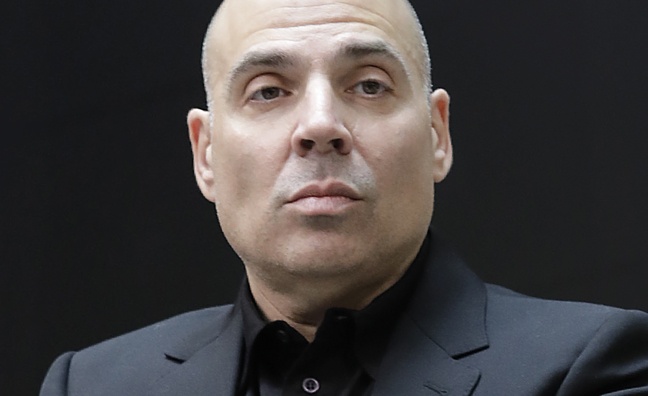Hipgnosis Songs boss Merck Mercuriadis has delivered a message to the majors in a new interview with Music Week.
The music mogul has consistently spoken of his intention to be a catalyst for changing where the songwriter sits in the economic equation as a consequence of his extraordinary spending spree since launching the song management company in 2018.
Speaking in the latest issue of Music Week, Mercuriadis said he the findings of the DCMS Committee's report into streaming, which included a call for a Competition And Markets Authority (CMA) investigation into the economic impact of the dominance of the major music groups, could help accelerate that shift.
“I thought that was probably work that would take seven or so years to do, but now I think it will take two or three years to do, because of the incredible work by the DCMS," he said.
“I believe the reason that the songwriter is the low man or woman in the economic equation is because the three biggest publishers in the world aren’t advocating for songwriters, because they’re owned and controlled by the three biggest recorded music companies.
"The recommendation of having the CMA look at this, what I call, unhealthy relationship between the major companies and publishers is essential to bring change in a way that will finally reward songwriters. Songs are the currency of our business: there’s nothing without the song, so how can it be that the songwriter is the lowest paid?”
We're talking about an industry that's going to grow by almost five times in the space of the next eight or nine years
Merck Mercuriadis, Hipgnosis
Praising Sony Music Entertainment's move to open up DSP royalties for legacy artists as part of its new Artists Forward initiative, Mercuriadis said the rude health of the record business meant, "the time is now" for major labels to do right by creators.
"When we started three years ago, there were barely 100 million paid subscribers to music streaming services. Today, there are 487m and by the time we get to the end of the decade, there will be two billion," he said. "We’re talking about an industry that’s going to grow by almost five times in the space of the next eight or nine years.
"I like to say that I’ve made my success with artists and songwriters and producers, as opposed to at the expense of them. The major companies now have to evolve, where hopefully in 10 years’ time, they can say the same thing. I’m a catalyst for change, but I can’t do it without someone like Lucian Grainge, Rob Stringer, or Max Lousada and Len Blavatnik jumping on board the train. What I hope is that people will recognise that there is enough money flooding into this industry now to share it fairly and equitably with the songwriters that give us the currency of our business.”
Almost all consumption of music today is paid consumption
Merck Mercuriadis, Hipgnosis Songs
Mercuriadis said the rise of streaming platforms meant music had gone from being considered a "discretionary, luxury purchase" to a "utility purchase".
"The benchmark for extraordinary success in our business used to be the platinum record," he said. "Using the United States as a microcosm, that's a million copies in a country that has 360m people in it. So our our customer was one in 360. That immediately tells you that the average person might have loved music and was happy to hear it ostensibly for free on the radio, or see it on television, but was never putting their hand in their pocket and pulling out a tenner and paying for it. Well now, there are 100m homes in the United States that all have a premium paid music subscription service. So our customer's gone from being one in 360 to being one in 3.6, so that's unbelievable.
"What's inherent with that, but not necessarily obvious to many people, is that the discount rates used by the market to value catalogues are narrowing as a result, because there is no risk anymore. There is a certainty to those revenues and that is making the catalogues more valuable – and therefore there's more money to share with the songwriter and the artist too."
He added: "Almost all consumption of music today is paid consumption. If you're streaming, you're paying for it. If you're listening on the radio, fees and royalties are being paid. If you're on social media, royalties are being paid, fees are being paid. If you're on Peloton doing your exercise class, again, it's the same thing. So 10 years ago, almost all consumption of music was unpaid consumption. Today, almost all consumption of music is paid consumption of music. These two things have dramatically changed the world of the economics of our world and make it possible to remunerate the songwriter fairly and equitably."
Click here to read the full Music Week Interview with Merck Mercuriadis.











